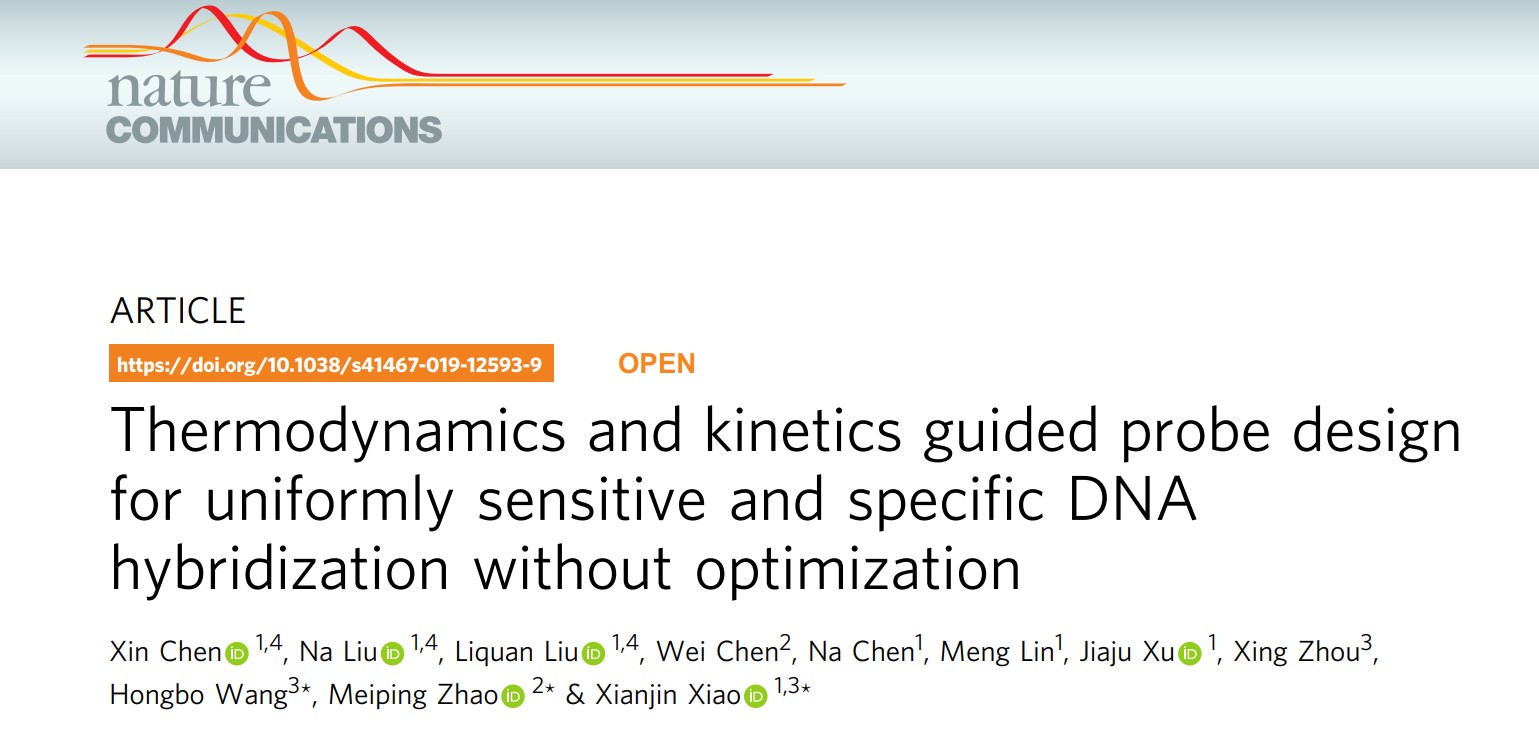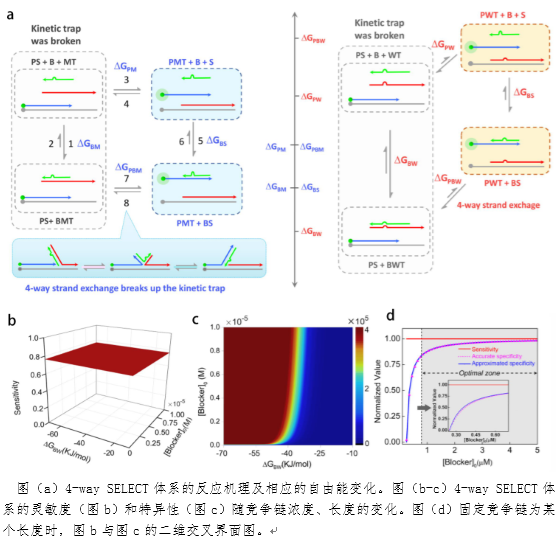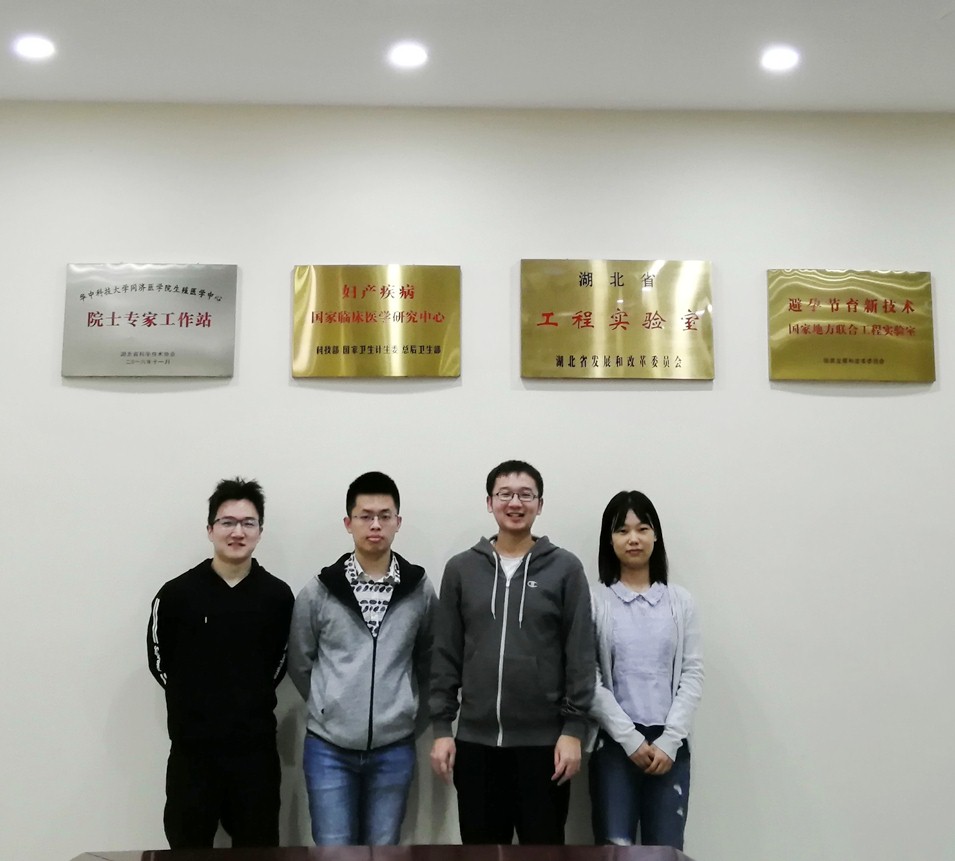On October 14, Associate Prof. XIAO Xianjin of the Institute of Reproductive Health published his latest research paper inNature CommunicationstitledThermodynamics and kinetics guided probe design for uniformly sensitive and specific DNA hybridization without optimization.

The following is the abstrct of his paper:Sensitive and specific DNA hybridization is essential for nucleic acid chemistry. Competitive composition of probe and blocker has been the most adopted probe design for its relatively high sensitivity and specificity. However, the sensitivity and specificity were inversely correlated over the length and concentration of the blocker strand, making the optimization process cumbersome. Herein, we construct a theoretical model for competitive DNA hybridization, which disclose that both the thermodynamics and kinetics contribute to the inverse correlation. Guided by this, we invent the 4-way Strand Exchange LEd Competitive DNA Testing (SELECT) system, which breaks up the inverse correlation. Using SELECT, we identified 16 hot-pot mutations in human genome under uniform conditions, without optimization at all. The specificities were all above 140. As a demonstration of the clinical practicability, we develop probe systems that detect mutations in human genomic DNA extracted from ovarian cancer patients with a detection limit of 0.1%.

This work was strongly supported and coordinated by the research groups of Prof. ZHAO Meiping from the School of Chemistry and Molecular Engineering, Peking University, and Prof. WANG Hongbo from Department of Obstetrics and Gynecology, Union Hospital Affiliated to our College. It embodies the advantages and great potential of interdisciplinary and integrated innovation. At present, Prof. XIAO Xianjin is employed by both TMC and its Affiliated Union Hospital. He will continue to explore the way of translational medicine by integrate the basic research and clinical medicine, and practice the idea of "the combination of medical technology and medical science".

Dr. XIAO Xianjin graduated from Beijing University, was introduced to work in the Institute of Reproductive Health in 2016, currently chaired 8 youth projects and NSFC projects etc.In the past 3 years, he has published 11 papers as first author or corresponding author, including Nature Communications (IF: 11.878), Nucleic Acids Research (IF:11.147), etc. In addition, Prof. XIAO actively explored the scientific research training program for eight-year clinical medicine students. Currently, there are 10 eight-year clinical medicine students in his research group, among whom 4 papers with first author were published.
The Institute of Reproductive Health has long supported interdisciplinary, integrated innovation and frontier exploration, providing a good environment for young talents. Meanwhile, the Institute actively encourages undergraduates to participate in reproductive-related research, which lays a solid foundation for the undergraduates.
